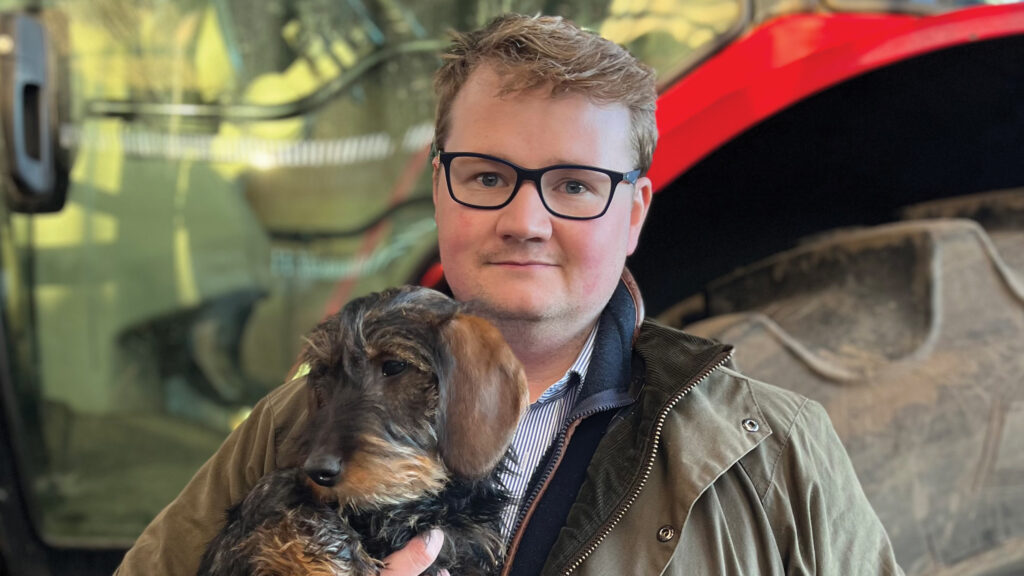Jack Frater: More farming reality on TV and fewer alpacas
 Jack Frater © Jack Frater
Jack Frater © Jack Frater Do accountants head home at the end of the day to watch TV programmes about accountancy?
I very much doubt it, because the subject is not seen by producers as one that will attract a big audience.
Farming, however, gets more than its fair share of primetime exposure.
See also: Jack Frater – Scottish policy vacuum causing planning headaches
But most of it gives an over-romanticised version of agriculture, usually revolving around someone who has made their money elsewhere, topping their five-acre smallholding on a 50-year-old Massey 135, before heading to a farmers’ market to sell some honey and homemade soap.
Countryfile is the worst offender. Even the brief segments on Adam’s Farm do little to show how technologically advanced the industry is.
I know I am not part of the target audience, but there is no excuse for them not to show agriculture in a more realistic light.
This Farming Life, on the BBC, started with the best intentions featuring some great forward-thinking businesses and highlighting the issues facing them.
But it has fallen into the same trap by featuring alpacas and ostriches more than commerciality or profitability.
Born Mucky, on Channel 5, started well, but the Quest channel is never going to reach the audiences needed.
Our Dream Farm, on Channel 4, is the farming equivalent of The Apprentice, with the National Trust taking the place of Lord Sugar.
It’s a good watch, with the contestants carrying themselves well, and has highlighted the struggles – and sometimes raw emotion – involved in the tender process. But so far it has had the air of The Good Life around it.
The only TV programme that comes close to reality is Clarkson’s Farm, which, while being entertaining, has done much to highlight the multitude of issues facing farmers.
It has also made it easier for me, thanks to “cheerful Charlie,” to explain my job to my non-farming friends.
Farming can attract a primetime audience, but it needs to portray the technology and science involved, acknowledging the best-performing businesses, whilst highlighting the challenges.
Having said that, I know of a few farmers who should be kept as far away from a camera as possible – and you know who you are.

